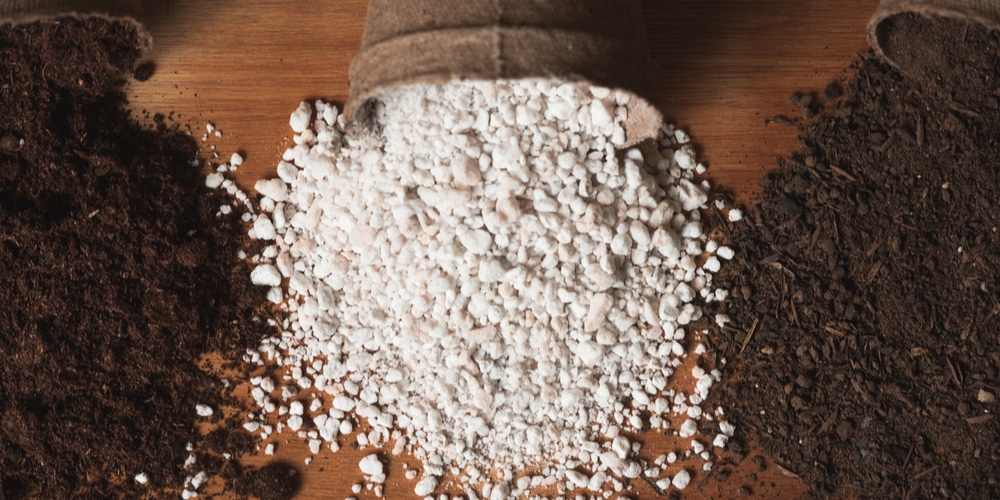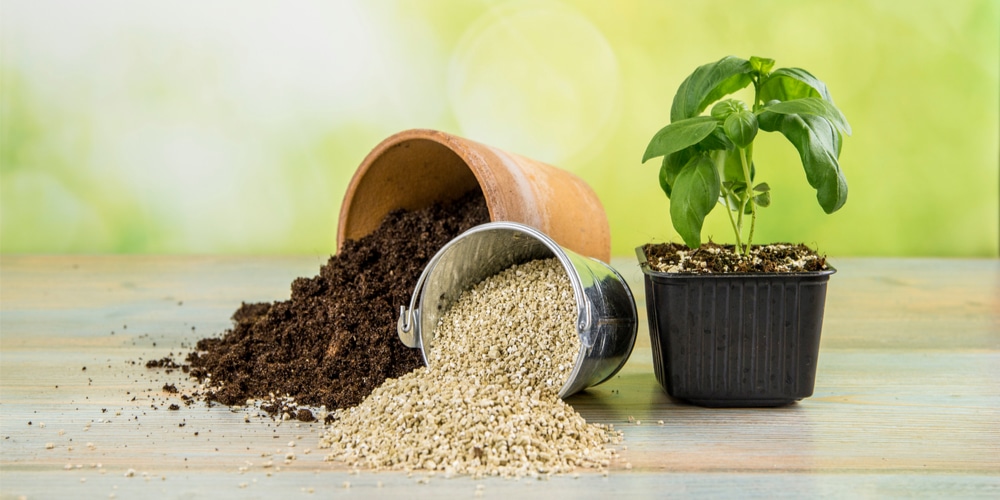Vermiculite and perlite are two essential inorganic soil amendments important for your garden medium. These inorganic amendments play an integral role in enhancing the soil texture and quality, as they come from expanded natural mineral materials. You can use them for your garden medium when growing vegetables and other crops.
The main purpose of these soil amendments is to improve the soil conditions, such as aeration, water retention, etc. Despite the similarities in the uses, appearance, or composition, these amendments have some differences that make one ideal for vegetables. This article outlines everything you need to understand when selecting perlite or vermiculite for vegetables.
Perlite or Vermiculite for Vegetables: What is Perlite?
It’s a form of amorphous volcanic glass that’s naturally occurring and comes with porous or lightweight characteristics after processing. It’s an essential soil amendment for your garden soil to keep it well-aerated, well-drained, and porous to enable it to store nutrients essential for plants. You can use it for hydroponic gardens or large-scale vegetable productions, as it enhances the best plant medium.
Perlite or Vermiculite for Vegetables: What is Vermiculite?
Vermiculite is one of the aluminum-iron silicate components that manufacturers superheat to achieve spongy, soft, and flaky material important for your garden needs. This alteration product of different minerals, including mica, is important for your garden soil medium. The products play a vital role in enhancing moisture-retentive and insulation mediums for growing different plants.
Comparison between Perlite and Vermiculite
Despite the similarities in uses, these inorganic soil amendments have some different features making them suit the growth of a particular plant or a certain garden medium. Below are the different features between these soil amendments to determine the one suitable for your vegetables:
● Physical properties
These soil amendments have different physical properties making them suitable for garden soil mediums and supporting the growth of different plants. Perlite has porous and white granules, with sharp edges hindering more water retention and proper aeration. Contrary, vermiculite comes with brownish golden granules that are spongy to allow for more water retention in the garden soil medium.
● Aeration
Soil aeration is an important property or component of the garden to enhance proper plant growth and yields. Perlite offers a high aeration property in the garden soil medium, which is important for your plants’ growth. This property results from its rigid structure or shape, providing the appropriate condition for plants, like vegetables that require a well-drained soil medium to thrive. In contrast, vermiculite comes with a medium aeration property due to its soft and spongy nature. The property limits air particles from penetrating the soil to the plant’s roots that require well-aerated soils.
● Water retention
Water retention is the ability of the soil medium to retain water that’s important for the plants. The roots absorb these water molecules to enhance photosynthesis and other plant processes. Perlites the properties to retain water molecules in the soil medium; instead, it traps water molecules found between the granule spaces.
In contrast, vermiculite has a soft nature that absorbs more water molecules and holds them efficiently within the soil medium. The vermiculite’s high water retention feature makes it ideal for plants, especially vegetables that require moist soils to grow.
● Suitability
Despite the various similarities, these plants have properties and compositions best suited for different gardening needs or growing different plants. Perlites are ideal for plants that use cuttings or vegetative parts for planting. In addition, they make the best soil medium for plants that requires moderate moisture in the soil and a well-drained property. On the contrary, vermiculite provides the best option for vegetables or crops that individuals use seedlings or seeds to propagate. Additionally, they offer the best option for crops that require moist soils to thrive.
Final Verdict
Despite having the same feature or functions of improving the different soil conditions, such as water retention, aeration, etc., these soil amendments have slight differences. These differences are very important when selecting the best soil for growing your vegetables. Vegetables require mineral or nutrient-rich, well-drained, slightly moist soil to thrive.
When comparing the appropriate choice between perlite or vermiculite for vegetables, perlite offers the appropriate options. Unlike vermiculite, this soil amendment enhances a moist and well-drained soil medium to hold more nutrients and water for the plants. Apart from the moisture content, they also provide an appropriate soil structure to enhance root development.
Related article: Perlite Vs. vermiculite

